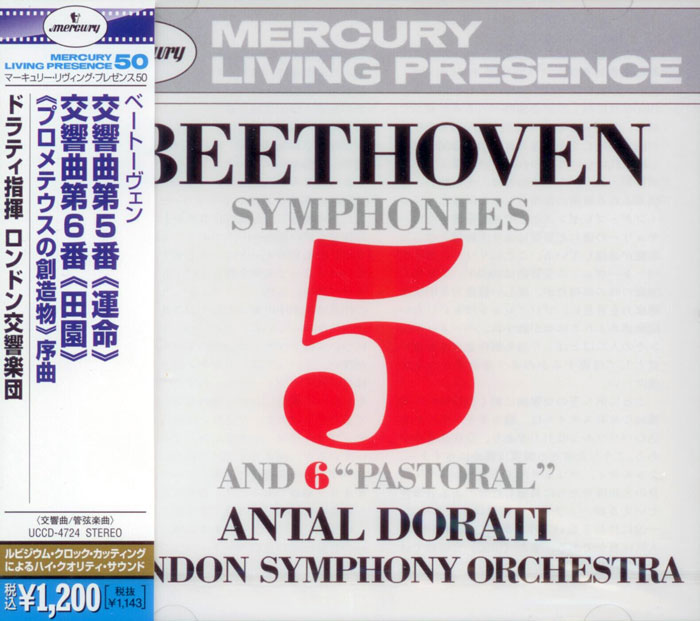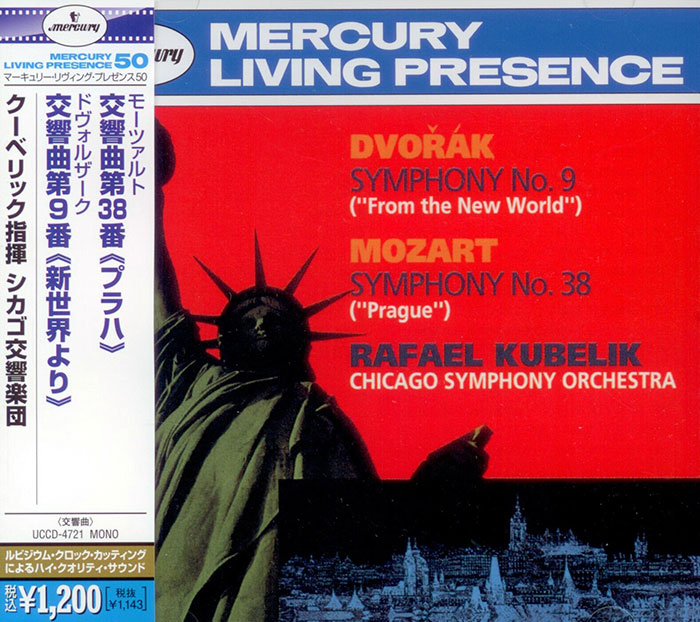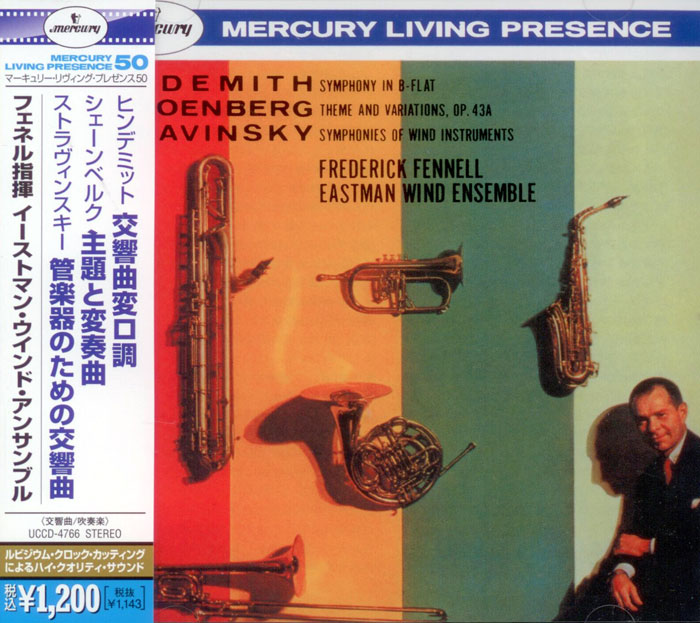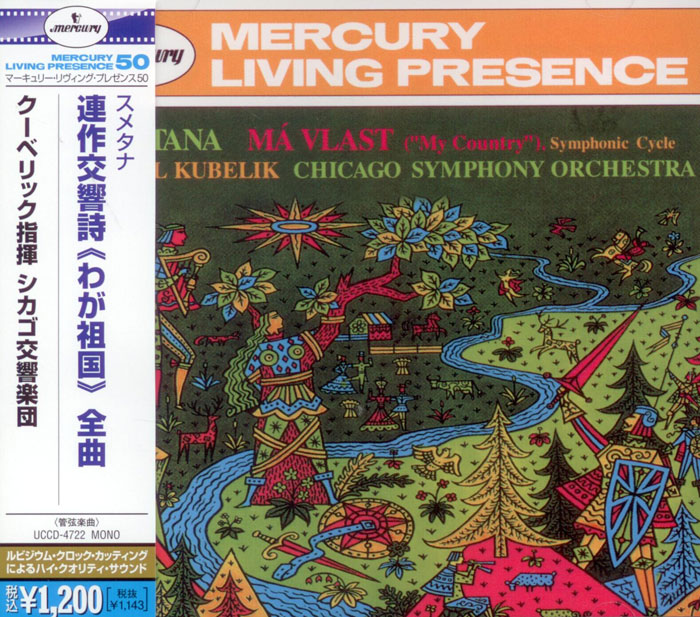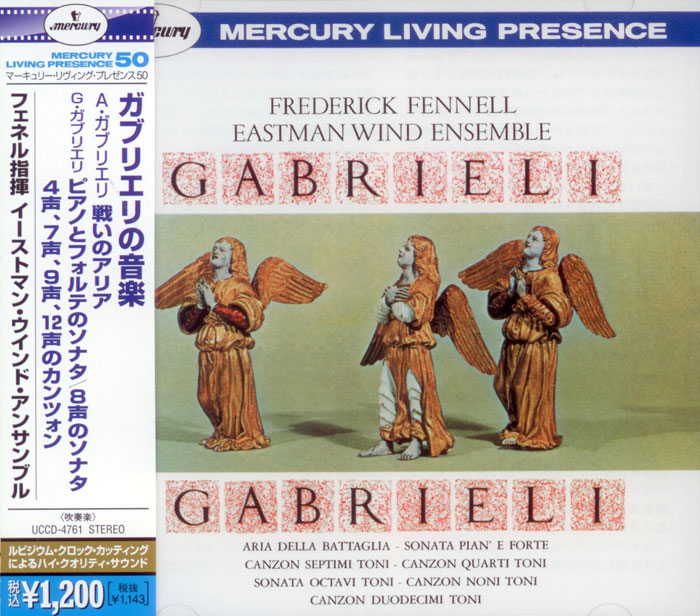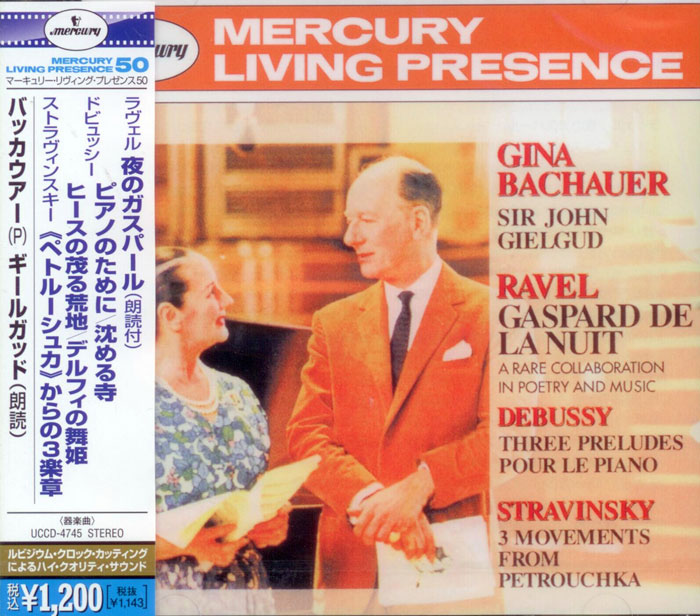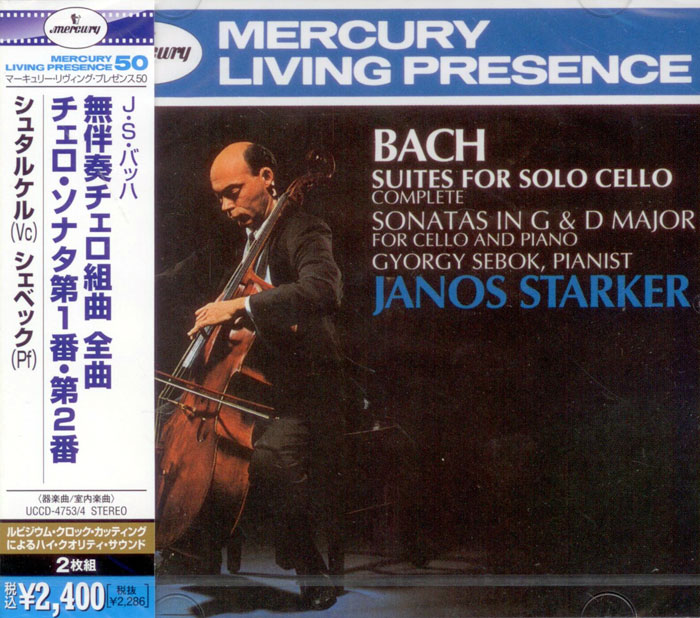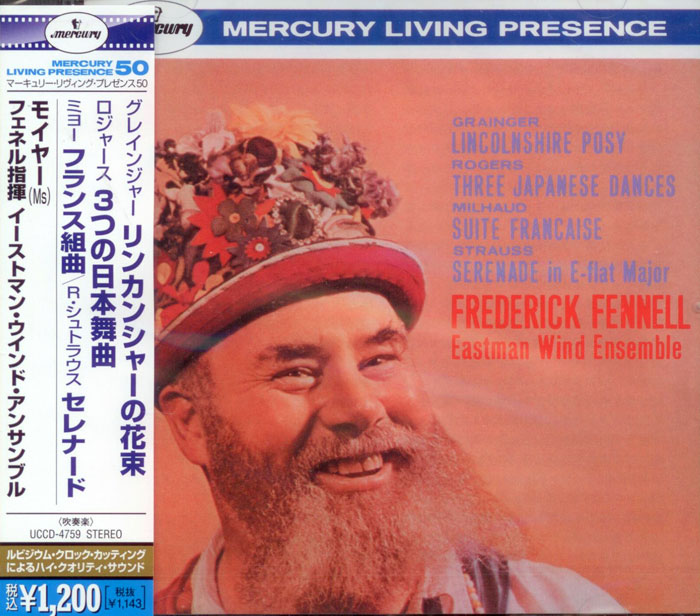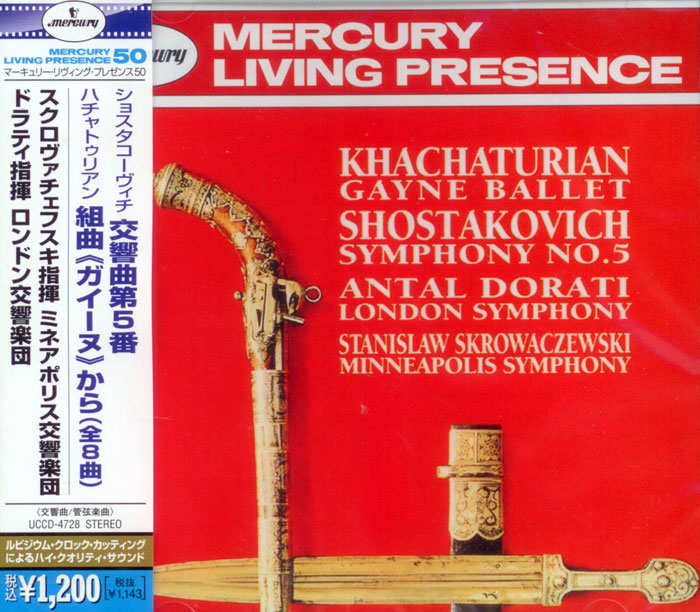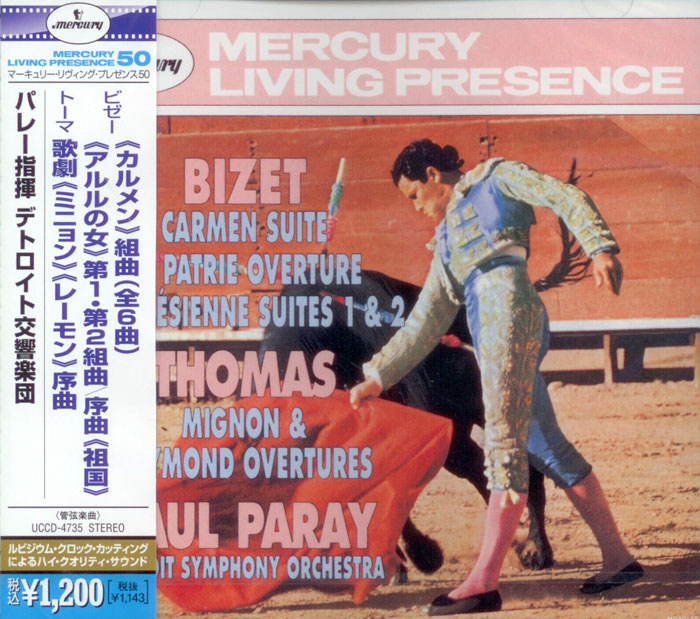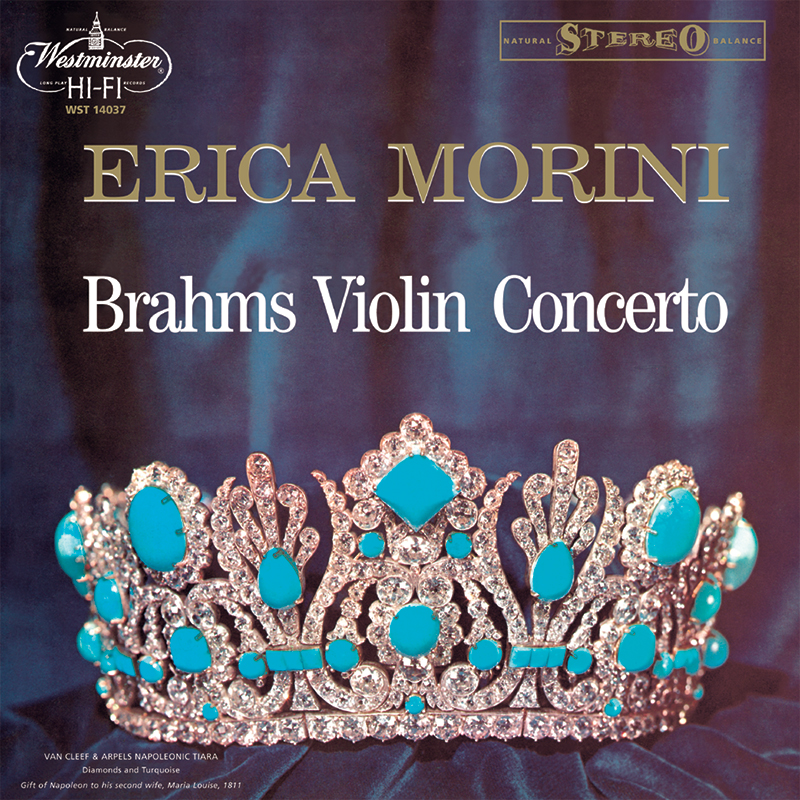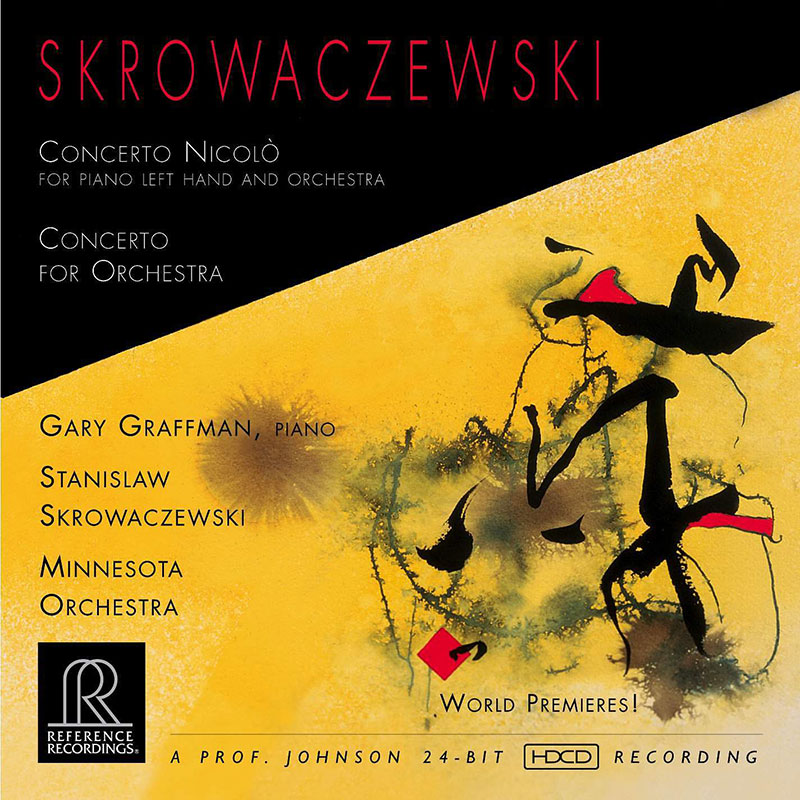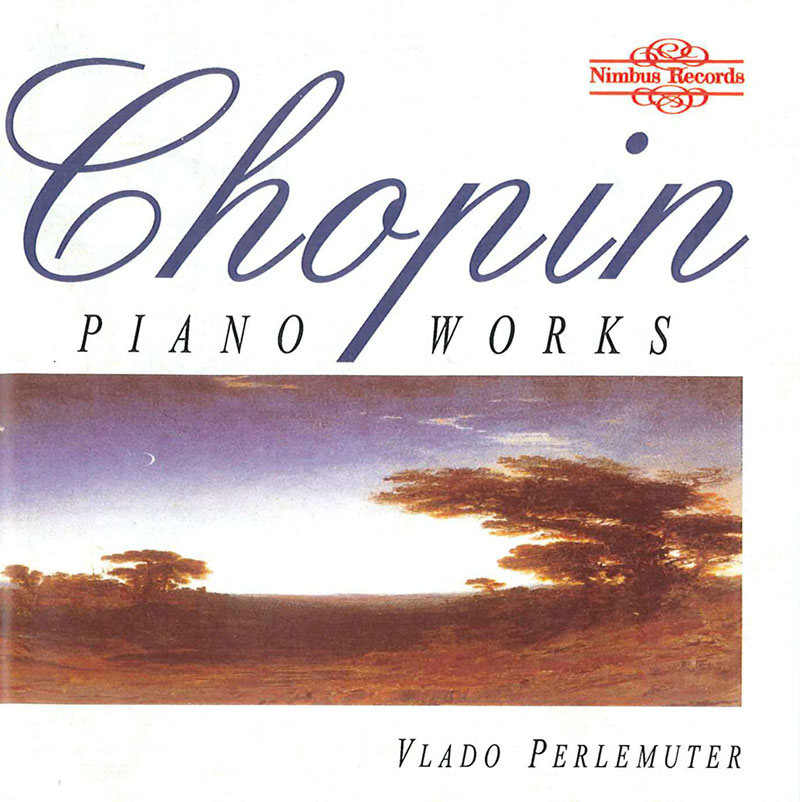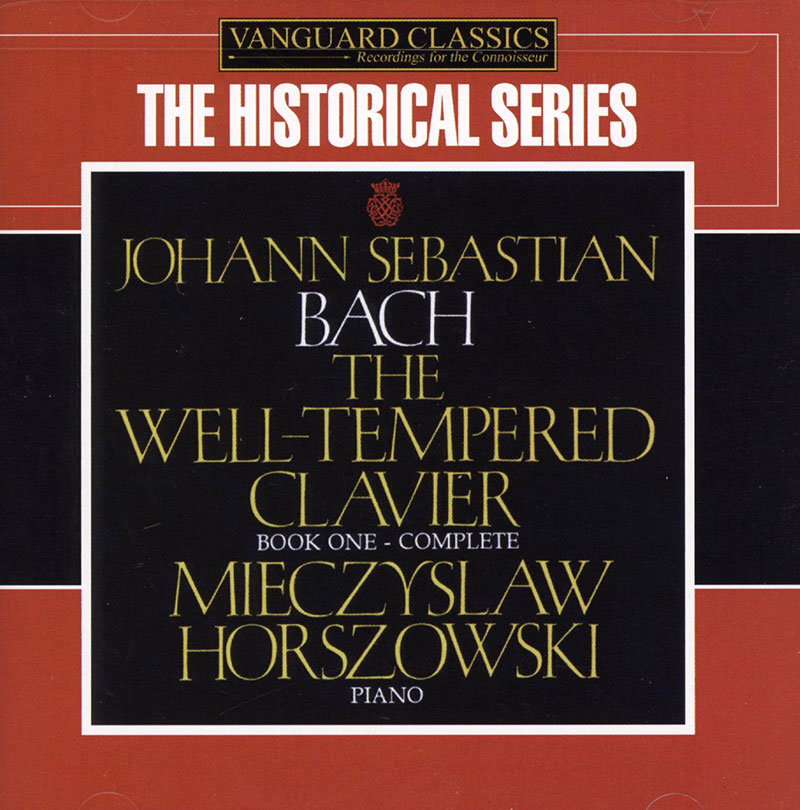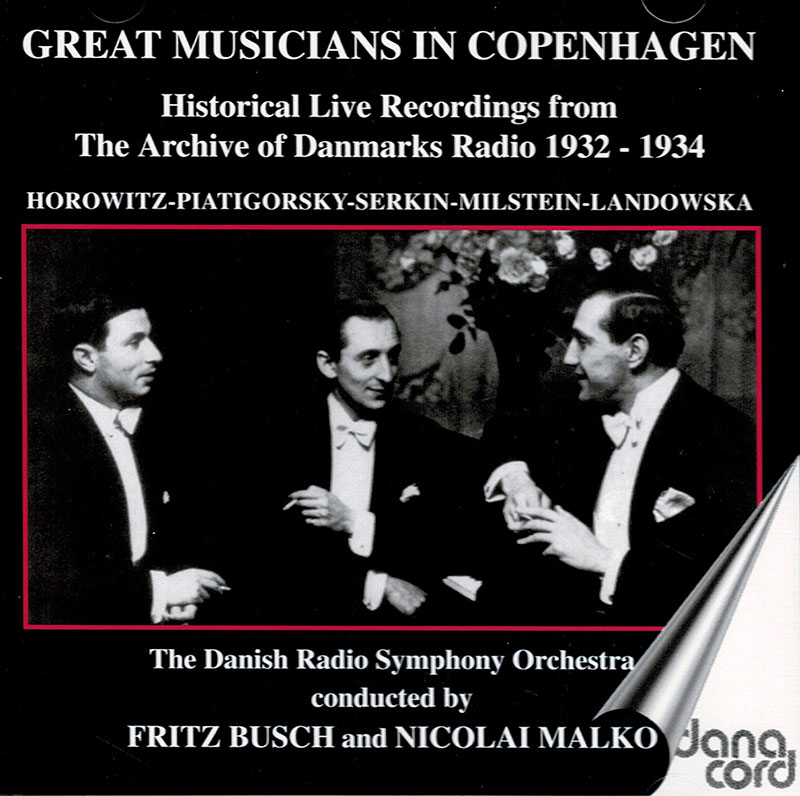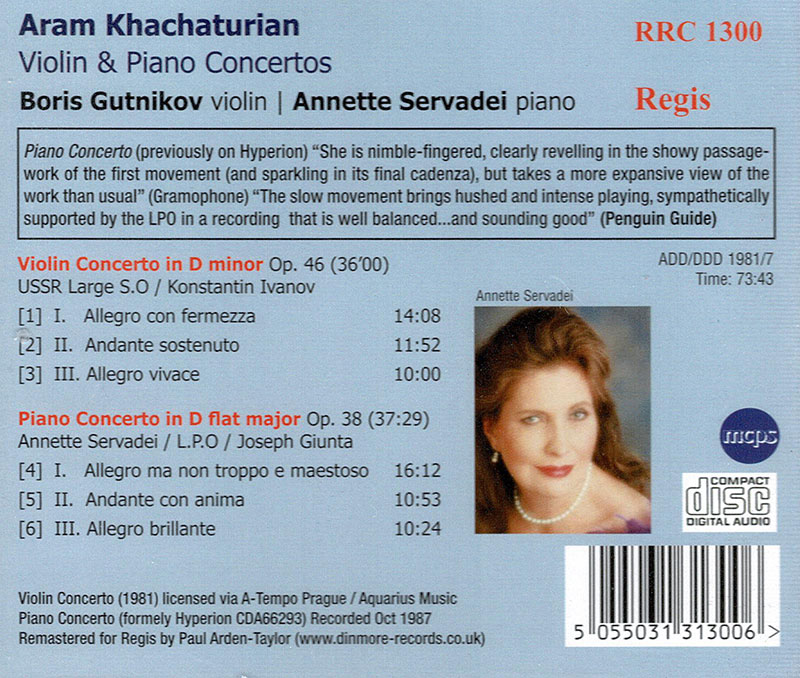Logowanie
Dlaczego wszystkjie inne nie brzmią tak jak te?
Chai Lang, Fan Tao, Broadcasting Chinese Orchestra
Illusive Butterfly
Butterly - motyl - to sekret i tajemnica muzyki chińskiej.
Brzmią jak sen na jawie
KHACHATURIAN, SHOSTAKOVICH, Antal Dorati, Stanislaw Skrowaczewski, The London Symphony Orchestra
Gayne / Symphony No. 5 in D minor, Op. 47
Stanisław Skrowaczewski,
Winylowy niezbędnik
ClearAudio
Cartridge Alignment Gauge - uniwersalny przyrząd do ustawiania geometrii wkładki i ramienia
Jedyny na rynku, tak wszechstronny i właściwy do każdego typu gramofonu!
ClearAudio
Harmo-nicer - nie tylko mata gramofonowa
Najlepsze rozwiązania leżą tuż obok
IDEALNA MATA ANTYPOŚLIZGOWA I ANTYWIBRACYJNA.
Osobowości
SKROWACZEWSKI, Stanislaw Skrowaczewski, Minnesota Orchestra
Concerto Nicolo for piano left hand and orchestra
WORLD PREMIERE!
KHACHATURIAN, Boris Gutnikov, Annette Servadei, Joseph Giunta, London Philharmonic Orchestra
Violin & Piano Concertos
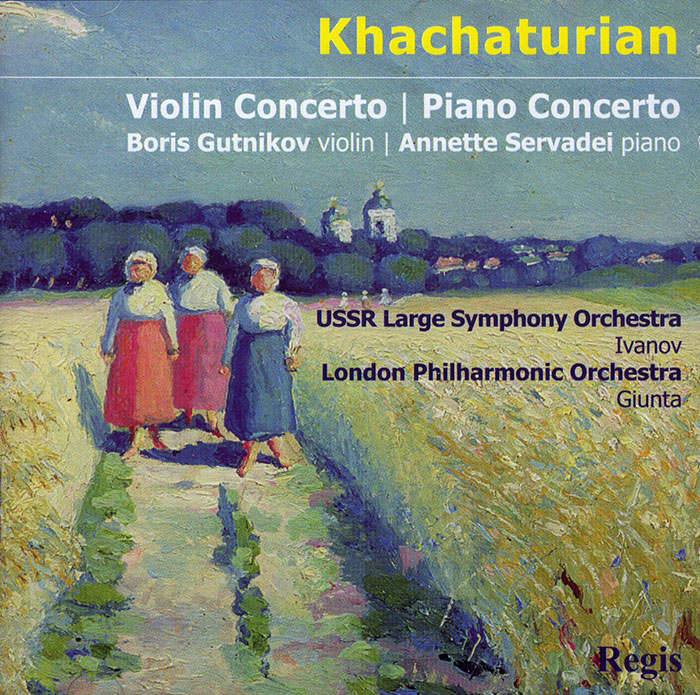
- Boris Gutnikov - violin
- Annette Servadei - piano
- Joseph Giunta - conductor
- London Philharmonic Orchestra - orchestra
- KHACHATURIAN
Discophage 4.0 out of 5 stars An oustanding version of Khachaturian's Violin Concerto - but NOT by Gutnikov-Ivanov - offset by a mediocre one of the PC August 8, 2009 On first impression, these are clever reissues. Regis licenced the 1987 recording of the Piano Concerto from Hyperion, where it was originally coupled with Britten's (Benjamin Britten, Aram Khachaturian: Piano Concertos), and paired it with what they claim is a 1981 recording of the Violin Concerto, "not previously issued in the west", by a significant Russian fiddler, Boris Gutnikov, winner of the 1957 Long-Thibaud and 1962 Tchaikovsky competitions. But Regis' claims deserve closer scrutiny. I was puzzled by their attribution of the VC to Gutnikov and old Russian stalwart Konstantin Ivanov. I could find no reference of a previous release. Also, the recording data: 1981 in Moscow? I have a fine Melodiya CD, released in 1989, with an outstanding version by Valery Klimov and Svetlanov (it was also published under the Olympia label - but other than label it was the exact same disc and booklet - and can be found under ASIN B000027Q3W on the UK sister company), which indicates the same recording year. The same recording - or at least one attributed to the same Klimov and Svetlanov and said to have been recorded in December 1980, which I haven't heard - was released in the early days of the CD (no barcode) in Japan as Victor/Melodiya VICC-2110 (it was sold on eBay in January 2014). Did Melodiya make two recordings in the same year? Most unlikely. So I checked, and sure enough - Regis and Melodiya/Olympia (and I assume the Victor/Melodiya release) are the same recording. Whose mistake it is, Olympia's and Victor's or Regis', I don't know, although the latter is way more likely. There was no disclaimer that I'm aware of in the original reviews, and the conducting certainly sounds like Svetlanov. I had an exchange of correspondence with Regis about this and they were very unwelcoming, but apparently they were conned by whichever Czech company that licensed the recording to them, or maybe the Czech company was conned by whichever Russian company that licensed the recording to them. Fish eat fish. At any rate, "not previously published in the west" is certainly false. Anyway, no one will be short-changed by the substitution from Gutnikov to Klimov - himself the first winner of the Tchaikovsky competition, in 1957 (the winner of the piano category that same year was Van Cliburn). Whether by Gutnikov-Ivanov or by Klimov-Svetlanov, this is one of the most outstanding versions of the VC, and given the limted availability of the original Olympia/Melodiya release, it is good to have it back, cheap and handy. Svetlanov I've often found a heavy-handed conductor, and especially the Mahler recordings of his I have heard I've found so burdened and schmaltzy as to be insufferable. But one thing is sure: he goes for effect and knows how to get it (which makes me think it is him indeed conducting and not Ivanov), and it is wonderfully effective in Khachaturian. This is easily, of all those I've heard, the recording that offers the most vivid and pungent orchestral colors; plus, the orchestra may sound big, but it is never heavy. On the contrary Svetlanov whips it up to great bite, and for this reason alone this could be my favorite stereo version. The climax in the slow movement at 9:55 is the most effective, harrowing and uplifting I've heard, and that is because the two clashing solo trumpets are given full glare, no holds barred. Klimov is not a name I've come across other than this recording, yet, as recorded here, he has a big sound, is digitally fleeting (only in the finale can one sense that is stacatto playing "sticks" a little more than it might) and with fine and precise tone. Interpretively, Klimov-Svetlanov take a slightly broader view of the first movement than the composer in his two mono recordings (with Kogan in 1951, Khachaturian: Concerto for violin / Concerto - Rhapsody for violin & Orchestra, and with Oistrakh in 1954, Aram Khachaturian: Masquerade; Gayaneh; Violin Concerto or Khachaturian: Violin Concerto/Taneyev: Suite de Concert - David Oistrakh, Aram Khachaturian, Philharmonia Orchestra), more along the lines of Khachaturian and Oistrakh's 1965 remake (which I have on the French Chant du Monde Oistrakh edition, not easy to find, but it's also on a Melodiya/BMG Twofer, Khatchaturian: Symphony No.1, Violin Con and on a Vox 2-CD set, Sibelius: Concerto Op47; Franck: Sonata for violin in A). Likewise their finale, after a fiery beginning, sets into a slightly more relaxed pace around the 2:45 mark. Nonetheless the fast sections have all the desired drive and fire, and the more lyrical ones (including the slow movement, despite the relatively fast pace they adopt, here closer to Khachaturian's two mono recordings) all the required and all-out lyricism - Armenian schmaltz even: I find it irresistible. So the only reservation I may have is that Klimov does a 13-bar cut in the first-movement cadenza (many fiddlers, following Oistrakh's lead, start off playing the printed one but then move on to their own) and practices the small Oistrakh-sanctioned cut in the finale (8 bars at 1:19) - no big deal. On the other hand, Annette Servadei and Joseph Giunta's recording of the Piano Concerto is, despite some interesting points, possibly the most mediocre I've heard. You just need to look at the timings to know that something alarming is in store. 16:12 for the first movement? The slowest recording to have previously come my way, Katz-Boult 1958 (Mindru Katz performs Khachaturian Piano Concerto in D flat; Prokofiev Piano Concerto No 1 in D flat op 10 or Legendary Pianist Mindru Katz), takes it in 15:32, Kapell's pioneering recording with Koussevitzky is at 14:55 (but I need to spare the few product links I'm left with; seach ASIN:B00005QIRZ Prokofiev/Khachaturian or ASIN:B000040JED William Kapell Edition Vol 4) and one of my favorites, the dashing Jemelik-Klima, at 13:38 (ASIN:B0011FSASM Khachaturian Borkovec or ASIN:B001J4W7OI Khachaturian Borkovec). And 10:24 for the finale? Kapell is dazzling, and takes a minute less to get through it, and so does Katz (whose interpretive options Servadei-Giunta are in fact astoundingly close to in the first two movements). And sure enough, Servadei-Giunta begin as I expected - and feared, at the lower end of Khachaturian's metronome mark (quarter-note 108-120), stressing the "maestoso" over the "allegro" and conveying an impression of lazy, trudging grandiloquence. To hear the benefit of dropping that "maestoso" altogether, in favor of a "feroce", try Jemelik-Klima: gone the bombast, enters hair-raising drive and energy. At least Giunta is more coherent than most in slowing down only slightly (to 100) when comes the second, folksy theme at 2:36 (the composer instructs to keep it "a tempo") and more or less keeping the same tempo (104-108) when it returns at 10:10. It has fine character that way. The allegro section after the first cadenza (6:15) doesn't have the dash and dazzle of Kapell or Jemelik, but it isn't infamous either. By the same token, Servadei-Giunta's truding quarter-note = 108 in the finale (to the composer's metronome of 120-128, and even more to Kapell's 138) is impossibly plodding. But at least it enables them to take the più mosso at 1:45 really faster (they rise to 126) where Kapell has nowhere faster to go. But the section after the cadenza, at 6:44, which with Kapell and every-one else has hair-raising energy, produces here little excitement, despite Servadei's efforts at muscular staccato articulation; and likewise with the coda at 9:24. As for the slow movement, the timing would suggest a more middle of the road approach (Katz-Boult and Jemelik-Klima take longer, and Kapell-Koussevitzky take almost as long), but in fact it is only because Servadei-Giunta exercice two cuts, at 1:00 and 2:29. Again their opening pace is one of the slowest I've met, quarter-note 54 to the composer's 69-72. I don't mind: turning Khachaturian's "andante con anima" into a dreamy adagio is quite effective, and the flexatone is nicely embedded in the orchestral texture. But they don't wake up at the "poco più mosso" section at 3:32: at their hands it sounds impossibly slumberous. Nonetheless, what is quite unique and, I find, quite attractive in Servadei's interpretation is that she doesn't bang her way through - a welcome change from the Kapell tradition -, but highlights the piece's Ravelian delicacy. Every commentator I've read insists on the Concerto's Lisztian or Rachmaninovian roots, but nobody seems to have heard its likeness to Ravel's two Piano Concertos. So Servadei's dreamy, ravelian first cadenza at 3:32 in the first movement seems quite appropriate - you think you are in Tombeau de Couperin - although you constantly wait for her to animate a bit and she never does. Likewise, she is very subdued in the second cadenza (12:03) and in the finale's cadenza, and I like it that way. The return of the folksy theme at 10:10 in the first movement is another passage where she nicely brings out the piece's ravelian delicacy. Still these few fine points don't compensate for the cuts and the overall lack of dynamism and adrenalin in the numerous sections that call for them. Not that it matters much in view of these defects, but Hyperion had afforded great sonics to the performers, with vivid and detailed orchestral presence - possibly the best I've heard in all recordings of the Piano Concerto. Regis' liner notes (by Peter Avis) are also outstanding - integral with biographies of Gutnikov and Ivanov. The Violin Concerto deserves five stars and the Piano Concerto, two. I average it to four because of the previous issue of the VC on Olympia/Melodiya is hard to find. But given the mediocrity of Servadei's interpretation, and the interest of the coupling of the original Olympia/Melodiya issue of the VC (Schoenberg's Violin Concerto, no less), collectors are advised to seek the latter. There's another entry for this Regis CD, so if still interested, check it out for the best price: Khachaturian: Violin Concerto & Piano Concerto.






